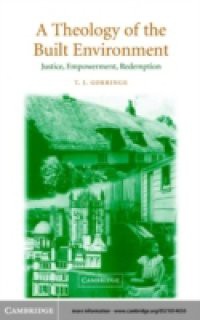In this 2002 book, Tim Gorringe reflects theologically on the built environment as a whole. Drawing on a wide range of both theological and social-scientific sources, Professor Gorringe explores Christianity in its urban settings, focussing on the use of space, design, architecture, and town planning to make a theological critique. After considering the divine grounding of constructed space, he looks at the ownership of land, the issues of housing, town and country, and the city, and then considers the built environment in terms of community and art. The book concludes with two chapters that set the whole within the framework of the environmental crisis and asks what directions the Church should be looking for in building for the future. This interesting book will challenge not only theologians, ethicists and sociologists of religion but also church teachers and professionals.

